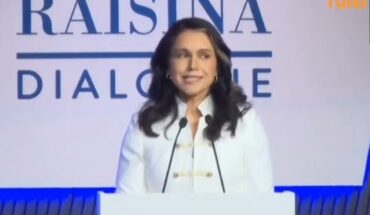Former Pakistani Prime Minister, Nawaz Sharif is quietly working to pave the route for unprecedented investments in his perennial financially deficit country.
He, however, has been told to allow adequate political and administrative space to the present hybrid regime being led by his younger brother, Shahbaaz Sharif.
His recent three-day visit to China reminds us of his previous three tenures, when he had successfully lured huge investments in different sectors. However, his removal by the army and its secret police, Inter Services Intelligence (ISI) ushered in political instability as well as economic disaster to the country.
It is also being asked whether the present coalition government of the country’s two major political parties, Pakistan People’ Party (PPP) and Pakistan Muslim League -Noon (PML-N) under Shahbaz Sharif is being allowed to have independent policy in key economic areas to attract investments. There is a general impression that like the government of
Imaran Khan’s Pakistan Tehreek-i-Insaf (PTI), it is functioning under the close supervision of the uniform.
In a bid to re-establish some facade of a civilian supremacy, Nawaz Sharif appears to have decided to play a more meaningful role in the country’s affairs, but without any confrontation with the GHQ. The stakes of the Sharif family are quite high, apart from Shahbaaz Sharif, his daughter, Maryam, leads Punjab as it’s chief minister.
As an astute politician, Nawaz Sharif’s visit to Beijing might lead not only to provide some relief to the country’s economy, but also improve its position in the geo-politics. The timing of his visit comes just after the much discussed high-level visits of the Saudi Arabian delegation and Iranian President, Ebrahim Raees to Islamabad.
Sharif’s visit to Beijing has been camouflaged that he was going for medical treatment. However, few believed it. It is quite known that during 2019-2023, he was in self-exile in London under the pretext of his treatment, but he was waiting for an opportune time to return to the country’s political arena. Also, China could hardly be a destination for medical treatment. The Chinese doctors are not known as top class physicians or surgeons. In the modern medical world. They do not enjoy even the reputation being enjoyed by their counterparts in India. A common Pakistani considers India as a better destination for medical treatment than any other country in the world, including China.
Reassuring Beijing
Nawaz Sharif’s China visit has finally received attention, especially amidst the reports that he is poised to become PML-N president during the second week of May. Thus, Nawaz Sharif’s visit, to Beijing, could usher in greater role for him in the key sectors like strategic affairs and finance.
The diplomatic circles in New Delhi and Islamabad, are abuzz with a number of issues, which might have been discussed during the visit. They might have included setting up an industrial complex for producing cheaper Chinese goods in Pakistan for exports to the neighboring countries. It might include supplies to India, where despite repeated anti-China rhetoric in media as well as at the government level, India has imported goods worth USD 117 billion in 2023, according to a UN report.
Awaiting GHQ Response
It is being stated that the Chinese might condone failure of the Pakistani army in protecting it’s nationals, but the response of the army chief Asim Munir is not known whether he would allow the speedy implementation of CPEC (China-Pakistan Economic Corridor), which was nearly shelved during the Imran Khan’s regime. It was then headed by an army officer reported to be close to the then army chief, Qanar Javed Bajwa. It is estimated that China has already sunk more than 60 billion USD in the project and there is little hope of recovering the huge loans extended to Pakistan. The donors like IMF and other international financial institutions have ensured that the financial assistance being extended to Pakistan should not be used for paying debts to China. They have also obtained details about the exorbitant interest rates being charged by China.
It, however , is said that Nawaz Sharif may succeed in pacifying the Dragon provided he succeeds in getting full support of the GHQ. At present, Beijing neither trusts the army not the present hybrid regime for further investments. It has rescheduled the repayment for the time being.
There are causes for the current trust -deficit between Islamabad and Beijing. Apart from siphoning off the Chinese money given to Pakistan by generals and bureaucrats for obtaining properties in London, Dubai and other destinations in the US, Australia and Canada, it’s security establishment has also failed to provide a foolproof security system to its engineers and other staff members. They ate being regularly targeted by various radical Islamic groups.
It is also reported that the Chinese ambassador to Pakistan had summoned PM Shahbaz Sharif to the embassy premises and scolded senior police and security officers for their failure in protecting Chinese personnel.
It is widely believed that Nawaz Sharif would succeed in pacifying the Chinese, but for this GHQ has to allow adequate freedom to the civilian leaders. They have to be allowed to implement the agreements with other countries.
Reinventing anti-India Rhetoric
The army and Inter-Services Intelligence (ISI) may continue to focus on the anti-Indian sentiments for bridging the trust deficit with China, but Nawaz Sharif may refuse to subscribe to it. It will not be surprising, if he visits New Delhi at the inauguration of the third term of Narendra Modi in June, if he finally trounces his political rivals.
He has already refused the Army’s advice to return to London for enjoy a peaceful retired life.
It is being closely watched whether
Sharif’s views regarding closer ties with India are finally acceptable to the GHQ, or it still believes in promoting the anti -India sentiments that had brought China and Pakistan closer during sixties. There is little possibility of repeating a Kargil conflict against India under the present regime. A few within the Pakistani establishment, who reportedly have been toyed with the idea of conducting a HAMAS type aggression against India or a repeat of the terrorists’ attack on Mumbai, are being forced to postpone their plan for the time being at least, but they continue to be a formidable group within army establishment against normalization of ties with India. It may be recalled that during the sixties, the then Pakistani leader, Z.A.Butto, a political proxy of the then army dictator, Ayub Khan, had brought the ISI, Chinese intelligence and the CIA together for creating unrest in India’s north-east region. The activity center was the American consulate in Dacca, the then capital of East Pakistan. Interestingly, the British intelligence MI-6 refused to work against India.
Their nexus against India has recently been exposed in a book, Milari, written by a former chief minister of Mizoram, Zoramthanga. Zoramthanga, who himself was an insurgent leader, had joined democratic politics after the Mizoram Accord. His book offers graphic details about the nexus among the three agencies helping the militants under the umbrella of Mizo National Front (MNF). They used to provide travel funds and weapons to them. The Pakistani army had setup camps on Mizoram -East Pakistan border; however, the situation had undergone paradigm changes following the end of Pakistani rule in its eastern wing, now Bangladesh.
The CIA, however, continued to support the MNF and it’s leader Lal Denga through its proxies in Church and media.
The army under it’s present chief,Asim Munir, is keen to repeat the anti-India conspiracies, it, perhaps, prevents him to allow free hand to the civilian leaders in international and strategic affairs.
Nawaz Sharif’s Agenda
It is being widely discussed across Pakistan, whether he would become a real power center in Pakistan’s unpredictable political environment. If he succeeds in opening the route for the much-awaited huge financial investments, he could pave the way for ensuring political and economic freedoms for the hybrid government led by Shahbaz.
With Asim Munir controlling all the branches of the government, legislature, executive and judiciary, it is difficult to predict whether Nawaz Sharif would succeed in getting the much needed political accommodation from the GHQ.
It is believed that Nawaz Sharif’s decision to visit Beijing could have been prompted by the appointment of Mohsin Naqvi as the Home Minister. Naqvi, known for his proximity with the GHQ, was appointed as the caretaker chief minister of Punjab during polls and is being allowed to continue as the chief of the Pakistan Cricket Board even after becoming the Home Minister.. His appointment has invited reactions within PML-N that the GHQ is controlling the civilian government, which has little say in the policies, but the reaction is being restrained by Nawaz Sharif.
Gopal Misra has been associated with national and international media. His books on journalism and geo-politics have been well-appreciated. Views are personal.





